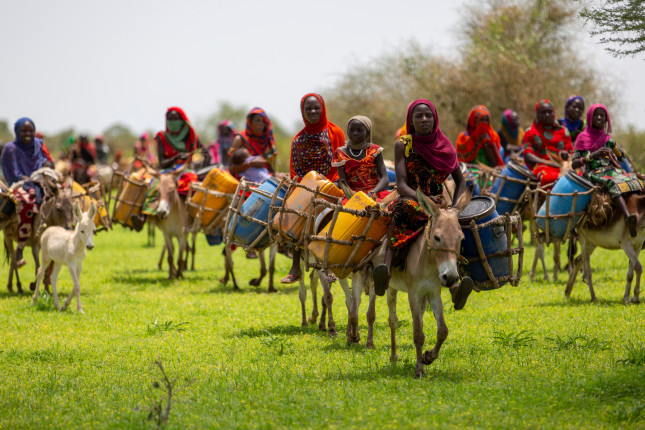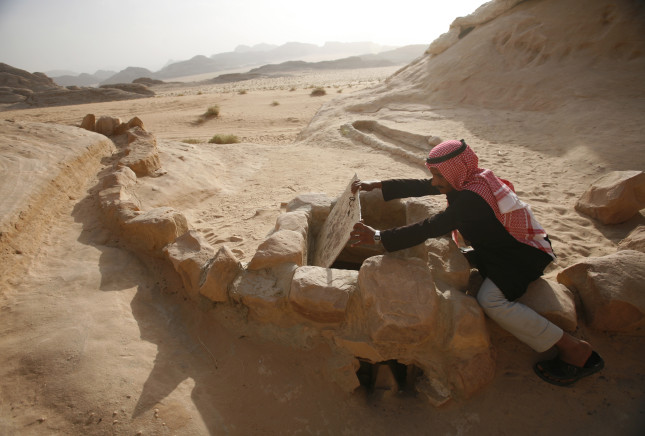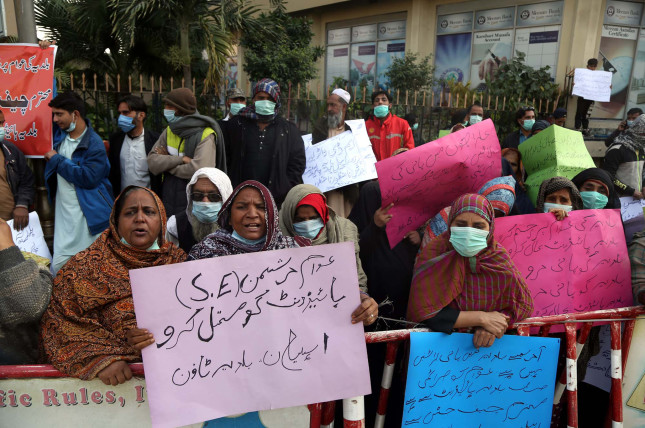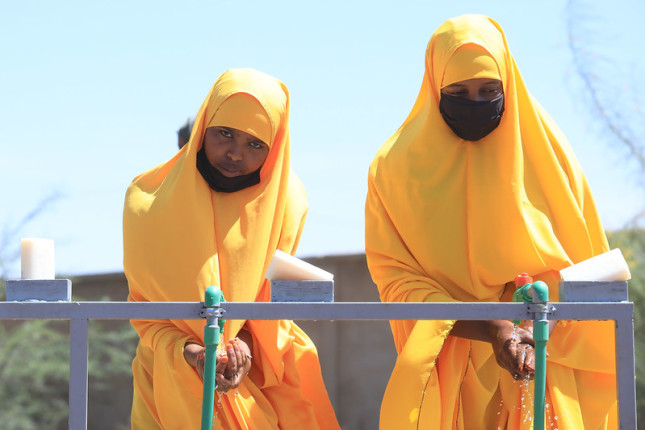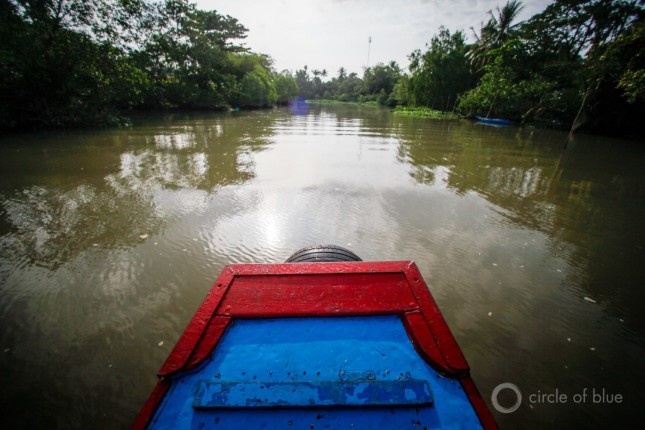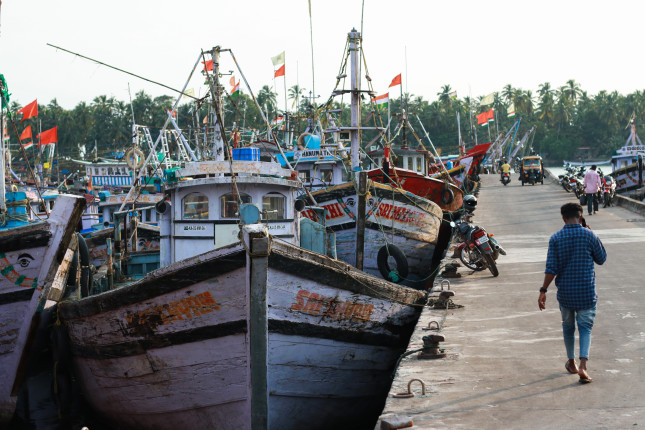-
Pandemic Brings WASH to Rare Inflection Point: Despite Fears of Collapse, Water, Sanitation, and Hygiene Draw Closer to Epic Goal
›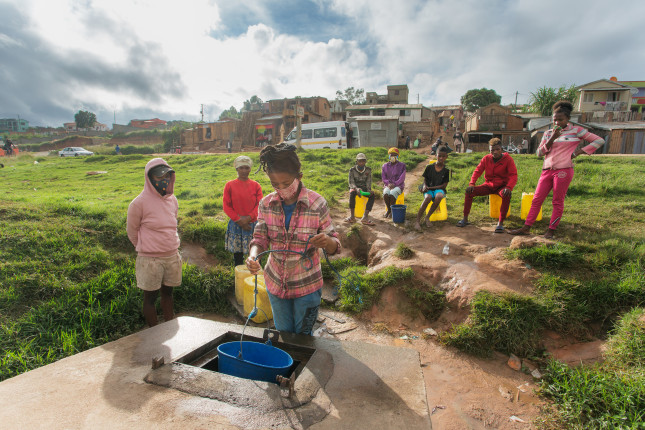
Until 2016, the agrarian residents of east Kenya’s Kitui county had never encountered a water quality monitor like Mary Musenya. Wearing a bright blue company jersey and furnished with sample bottles and plastic trays, the young Kenyan is a water safety officer for FundiFix, a tiny rural water supply service company. She is one of 20 staff who manage 130 pumps, plus pipes and water tanks that serve 82,000 people across a 1,000 square-mile service area in Kitui and Kwale counties.
-
Digital Water Diplomacy: Keeping Water Dialogues Afloat
›
In 2020, the world experienced the convergence of the global water and climate change crises, the COVID-19 pandemic, and economic recession. The compounded emergencies hit even well-prepared countries hard. For the more than 50 percent of the world’s population that relies on transboundary freshwater sources for their drinking water, the renewed urgency for access to water for sanitation raised additional challenges. Effectively responding to the crises demanded an elevated degree of communication and coordination between neighboring states precisely when coordination and collaboration processes encountered new barriers to effective transboundary engagement. As neighboring states instituted travel restrictions, water dialogues had to adapt through digital water diplomacy processes.
-
No Peace Without Water, No Water Without Peace, and Neither Without Women’s Empowerment
›
Water deprivation is increasingly recognized as a political and security problem. Tensions resulting from the growing imbalance between global water demand and supply can escalate into conflict. Efforts to solve water-related conflicts and promote water cooperation for peace, termed “water diplomacy” or “hydro-diplomacy,” continue to be male-dominated. Several recent events and related publications are contributing to bridging this persistent gender gap.
-
Avoiding Crisis in Jordan’s Tenuous Water Future
›
Jordan is facing a deepening, multi-faceted freshwater crisis. Climate change and population growth are exacerbating its extremely limited natural water availability and dependence on transboundary rivers and groundwater. Water-poor and functionally landlocked, Jordan serves as an archetype of a water-stressed nation.
-
Why Water Conflict is Rising, Especially on the Local Level
›
That future wars will be fought over water, rather than oil, has become something of a truism, particularly with regard to the Middle East. It’s also one that most water experts have refuted time and time and time again. But while this preference for cooperation over conflict may (and emphasis on may) remain true of interstate disputes, this blanket aversion to the ‘water wars’ narrative fails to account for the rash of other water-related hostilities that are erupting across many of the world’s drylands. As neither full-on warfare nor issues that necessarily resonate beyond specific, sometimes isolated areas, these ‘grey zone’ clashes don’t seem to be fully registering in the broader discussion of water conflicts. In failing to adequately account for the volume of localized violence, the world is probably chronically underestimating the extent to which water insecurity is already contributing to conflict.
-
A New Year Brings Enduring Challenges: Financing for Water and Sanitation Utilities During COVID-19
›
Eleven months have passed since COVID-19 was declared a global pandemic by the World Health Organization (WHO). As we rang in the new year, the world surpassed two million deaths due to COVID-19. While it is encouraging that 77 countries have distributed 168 million COVID-19 vaccine doses, only a small fraction of these are in low-income countries. Vaccinations may not be widely distributed in most of sub-Saharan Africa until 2022-2023. Furthermore, the new COVID-19 variant recently discovered in South Africa is estimated to be 50 percent more contagious, underscoring the need for a collaborative international response.
-
Four International Water Stories to Watch in 2021
›
The travails of the last year, when a bat virus infected humans and turned the world upside down, were an unfortunate reminder of the inseparable ties between society and the natural environment.
So it is with water, which will again this year direct the course of history, through events small and large.
What are the large events to pay attention to? What are the trends and flashpoints?
-
Managing Fisheries Conflict in the 21st Century: A Role for Regional Management Organizations?
›
Are climate change and declining fisheries productivity likely to lead to a future of fish wars, or can existing fisheries management institutions evolve to help prevent large-scale fisheries conflict? From militarized fishing practices in the South China Sea, to the ongoing wrangling between the European Union and Great Britain over fishing rights, to violent clashes between indigenous and non-indigenous fishers in Canada, fisheries are at the center of many international, or at least inter-governmental, disputes.
Showing posts from category water.



